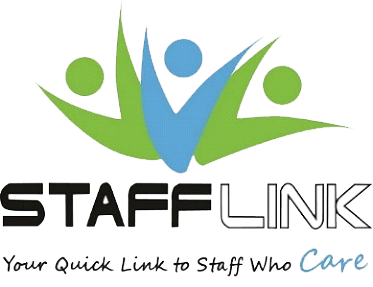Caregiving – A Stressful Calling
| By: Cheryl Hitchcock | |

| Approximately 65 million Americans are caregivers to loved ones. These people, who care for loved ones without training as health care professionals, are in many cases forced to do so due to our aging population and changes in health care system. Whether an ill partner or child, or an aging parent without adequate insurance coverage for ongoing elder care, these family members may experience very high levels of caregiver stress. While caring for a loved one who is unable to care for them self can be very fulfilling, it can also take a great toll on the caregiver, with a great deal of emotional and physical strain, known as caregiver stress. This stress can become debilitating to the caregiver as well, leading to the same stress related symptoms that all stress-out people feel: headaches, anxiety, depression, muscle tension or pain, restlessness, fatigue, over- or under-eating, sleeping problems, drug or alcohol abuse, social withdrawal, and emotional extremes – especially irritability or anger. Symptoms of caregiver stress Here are a few of the most common symptoms of caregiver stress, borrowed from the Mayo Clinic: – Feeling tired most of the time – Feeling overwhelmed and irritable – Sleeping too much or too little – Gaining or losing a lot of weight – Losing interest in activities you used to enjoy One of the most pernicious results of caregiver stress is – anger at the loved one for whom you are caring; the irrational feeling that he or she is denying you of a more fulfilling life because of their need for you to take care of them. This is a very dangerous symptom of caregiver stress, as it may lead to the neglect, or outright abuse, of your loved one. How to deal with caregiver stress The effects of out-of-control stress are dangerous for anyone, leading to a variety of health problems. For the caregiver though, this stress can be even more dangerous, as it may directly impact the care of the loved for whom to whom you’ve pledged your support. This can lead to even more stress, as you realize the care you’ve promised to give has been compromised. Again from the Mayo clinic, there are things you can do to help yourself deal with the stress of being a caregiver: – Accept help. Be prepared with a list of ways that others can help you, and let the helper choose what he or she would like to do. – Focus on what you are able to provide. Don’t give in to guilt. Feeling guilty is normal, but understand that no one is a “perfect” caregiver. And you don’t have to feel guilty about asking for help. – Get connected. Organizations such as the Red Cross and the Alzheimer’s Association offer classes on caregiving, and local hospitals may have classes specifically about the disease your loved one is facing. – Join a support group. A support group can be a great source for encouragement and advice from others in similar situations. It can also be a good place to make new friends. – Seek social support. Make an effort to stay emotionally connected with family and friends. Set aside time each week for socializing, even if it’s just a walk with a friend. – Set personal health goals. For example, set a goal to find time to be physically active on most days of the week, or set a goal for getting a good night’s sleep. It’s also crucial to eat a healthy diet. – See your doctor. Get recommended immunizations and screenings. Make sure to tell your doctor that you’re a caregiver. Don’t hesitate to mention any concerns or symptoms you have. If you’re the caregiver in your family, you must remember to set aside time for yourself – for self-care. Do not try to be perfect. Do not try to be all things to all people. Do the best you can for the ones you love, and ask for, and accept, help when needed. And that’s good enough. |
| Cheryl Hitchcock is an Author, Therapist, Coach, and Public Speaker. She works with the mind and the behaviours to overcome some of the most debilitating, negative, blocking behaviours that cause stress and stress related illnesses. Learn more at http://www.integritycounsellingservices.com. Article Source: http://www.articlebiz.com/article/1051592377-1-caregiving-a-stressful-calling/ |
Latest posts by Gretchen Curry, MSPH (see all)
- StaffLink Celebrates 38 Years in Business! - March 30, 2025
- What Is the Hourly Cost for Home Health in 2025? - March 12, 2025
- Seeking Retirees and Mature Persons to Provide In-home Care to Seniors - February 26, 2025
